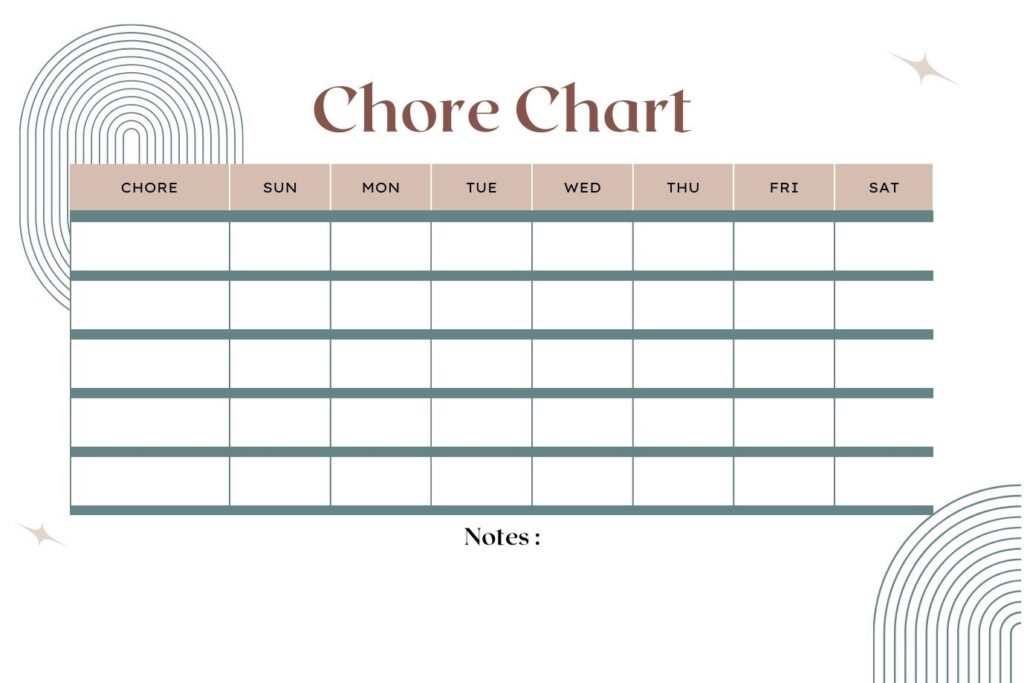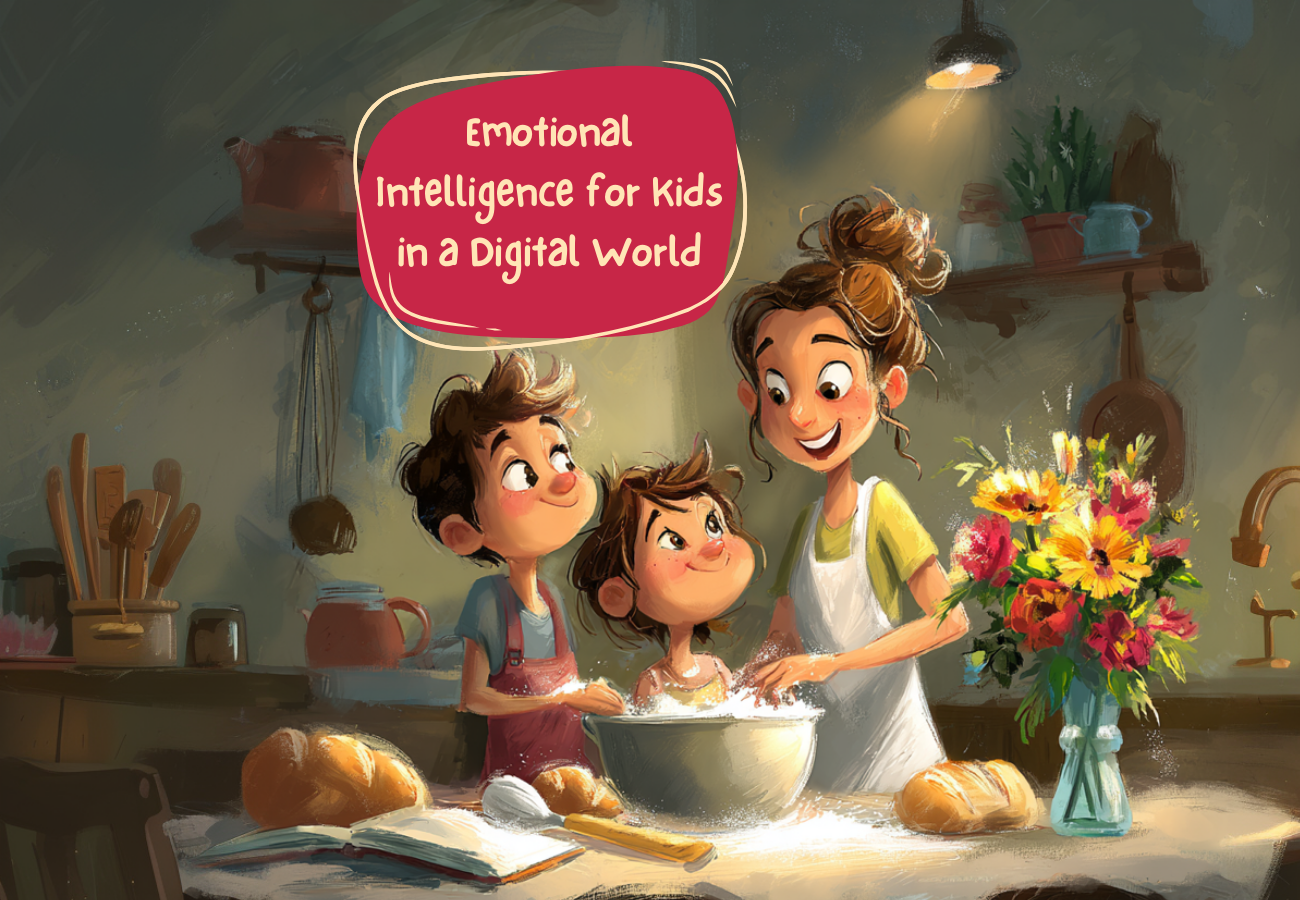The Magic of Printable Chore Charts for Kids

In the chaos of modern life, instilling a sense of responsibility in children is more important than ever. This article delves into an innovative and practical approach – chore charts for kids – designed to foster accountability and teamwork in our little ones.
Benefits of Using Chore Charts
Teaching responsibility and accountability to children is no easy task, but chore charts make it surprisingly engaging and effective. They instill a sense of accomplishment, promote teamwork and collaboration, and even contribute to developing essential time management skills.
Printable Chore Charts
Printable chore charts have revolutionized the way parents approach teaching responsibility. We explore the definition and purpose of these charts, highlighting the advantages they bring, such as accessibility and convenience for parents leading busy lives.
Free Printable “Chore Chart” PDF

Creating an Effective Chore List
Incorporating modern research into creating an effective chore list is essential for maximizing its impact on children’s development. Numerous studies highlight the benefits of involving children in household chores from a young age. Research by developmental psychologists emphasizes that chores contribute to developing essential life skills and foster a sense of competence and self-worth in children.
Different Age Groups, Different Tasks
Understanding the developmental stages of children is crucial when assigning chores. Recent research suggests that toddlers can engage in simple tasks that promote motor skills and independence, such as putting toys away or picking up clothes. For elementary school kids, chores can be expanded to include more responsibilities like setting the table or helping with basic meal preparation. Teenagers, in turn, can take on more complex tasks that align with their evolving capabilities, such as managing their laundry or assisting with grocery shopping.
The Importance of Task Rotation
Modern parenting approaches, informed by research in child psychology, advocate for the rotation of chores to prevent monotony and promote skill diversification. Experts argue that rotating tasks prevents burnout and exposes children to various responsibilities, contributing to a well-rounded skill set. By incorporating a diverse range of chores over time, parents can ensure their children develop a broad spectrum of practical skills essential for their future.
Designing a Chore Chart
Choosing the Right Template with a Modern Twist
Selecting a suitable template for a chore chart involves considering aesthetic appeal and functionality. Modern research indicates that visually appealing and user-friendly chore charts are more likely to capture a child’s attention and sustain their interest over time. Online platforms and apps tailored for creating interactive chore charts have gained popularity, offering a digital and interactive approach that resonates with tech-savvy kids.
Customization and Motivation in the Digital Age
The customization process takes on a new dimension with the advent of technology. Parents can leverage digital tools to tailor chore charts to their child’s preferences and interests. Modern research suggests incorporating technology, such as gamified elements and virtual rewards, enhances motivation and engagement. Apps that allow children to track their progress and earn digital incentives are effective tools in the chore chart customization process.
Positive Reinforcement in the Modern Era
The importance of positive reinforcement in shaping behavior is a timeless principle, but modern research emphasizes the need to adapt to changing dynamics. Recent studies suggest that verbal praise, coupled with tangible rewards like small treats or privileges, remains an effective strategy. However, incorporating occasional surprise rewards or creating a collaborative family incentive system can add a modern twist, keeping children excited and motivated to fulfill their responsibilities.
By combining traditional principles with insights from contemporary research, parents can create chore charts that stand the test of time and resonate with the modern sensibilities of today’s tech-savvy and diverse generation of children.
Implementing the Chore Chart System
It’s crucial to recognize that the success of such a system lies not only in its design but also in the practical execution within the family dynamic. Modern parenting approaches underscore the importance of adaptability and open communication, acknowledging that each family is unique.
Setting Clear Expectations
Clear expectations serve as the cornerstone of any effective chore chart system. Modern research in parenting emphasizes the need for parents to communicate with their children about the purpose of chores and how their contributions contribute to the family’s overall well-being. Setting specific, achievable goals ensures children understand what is expected of them, fostering a sense of responsibility and accountability.
Establishing Routines for Consistency
Establishing routines is more than just a practicality; it’s a psychological tool that aids in habit formation. Modern studies on child development stress the significance of routines in creating a sense of stability and security for children. When chores become ingrained in a daily or weekly routine, they are more likely to become second nature, reducing resistance and promoting a positive attitude toward responsibilities.
Adjusting the Chore Chart as Needed
Flexibility is critical to successful parenting, and the chore chart system is no exception. Modern parenting practices highlight the need to adapt the chore chart to evolving family dynamics, schedules, and individual capabilities. Recognizing that circumstances change allows parents to make necessary adjustments, preventing the chore chart from becoming a source of stress and frustration.
Tracking Progress
Regularly updating the chore chart ensures its relevance and effectiveness. In addition to the practical benefits, such as keeping tasks organized, modern research indicates that visually tracking progress positively impacts a child’s motivation and self-esteem. Consider incorporating a visual element that allows children to see their accomplishments over time, fostering a sense of pride in their contributions to the family.
Celebrating Achievements
Positive reinforcement remains a powerful motivator, and celebrating achievements is a timeless practice in parenting. Modern twists on this concept involve incorporating personalised celebrations, such as allowing the child to choose a family activity or outing, reinforcing the idea that responsibilities are not only obligations but also opportunities for positive experiences. For instance, give your kid a star when they were generous. This would be great generosity skill reinforcement.
Another great way to celebrate achievements would be filling out the “I Can” worksheet to boost your kid’s confidence. Or, you could get your kid a new book which would be highly beneficial for their life skills development.
Addressing Challenges and Providing Guidance
Challenges are inevitable, but how they are addressed can significantly impact the success of the chore chart system. Modern parenting suggests approaching difficulties with empathy, actively involving children in problem-solving, and providing constructive guidance. This not only teaches problem-solving skills but also strengthens the parent-child bond.
By combining practical advice with insights from modern parenting research, implementing a chore chart system becomes a dynamic and adaptable tool for instilling responsibility and teamwork in the family.
More articles

Creating Joyful Learning for Neurodiverse Kids: A Homeschooling Mom’s Journey with Alicia Ortego Books
A New Path in Education We always love hearing how our books support children and parents around the world. Recently, we spoke with a mom of three neurodivergent boys and the founder of Backyard Academy. Every day, she looks for creative ways to approach learning and parenting, and she shared with us how Alicia Ortego’s […]

Individual vs. Team Sport Activities for Your Kids: Pros and Cons
Helping children stay active and healthy often starts with sports. But deciding between individual or team sports can be tricky. Each type offers unique experiences and developmental benefits, but also has potential drawbacks. Understanding the differences can help you make informed choices based on your child’s personality, interests, and abilities. What Are Individual Sports? Individual […]

How to Nurture Your Child’s Emotional Intelligence in the Digital Age
Raising children today is nothing like it was in the 90s. Children in the 90s spent the majority of their time playing outdoors with neighbors or going to the local library or the beach. In that era, screen time mostly centered around TV, cable, or video games. But things are quite different in 2025. Kids […]



